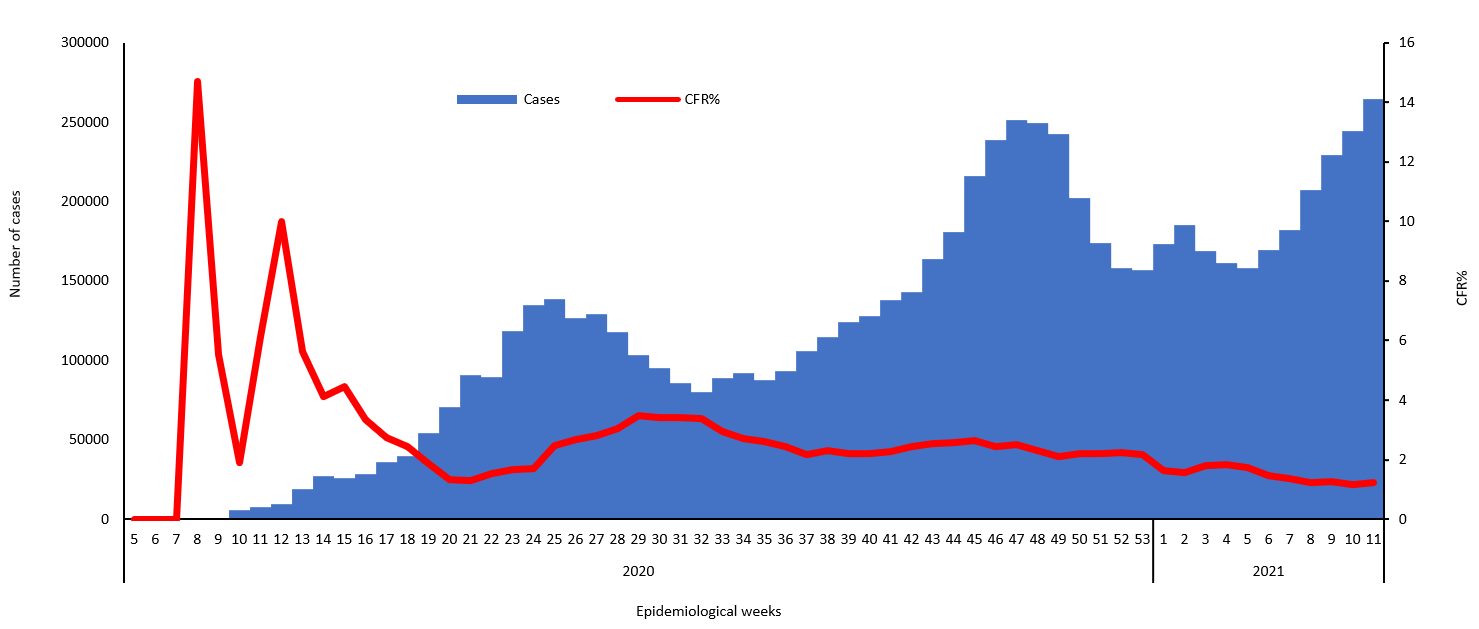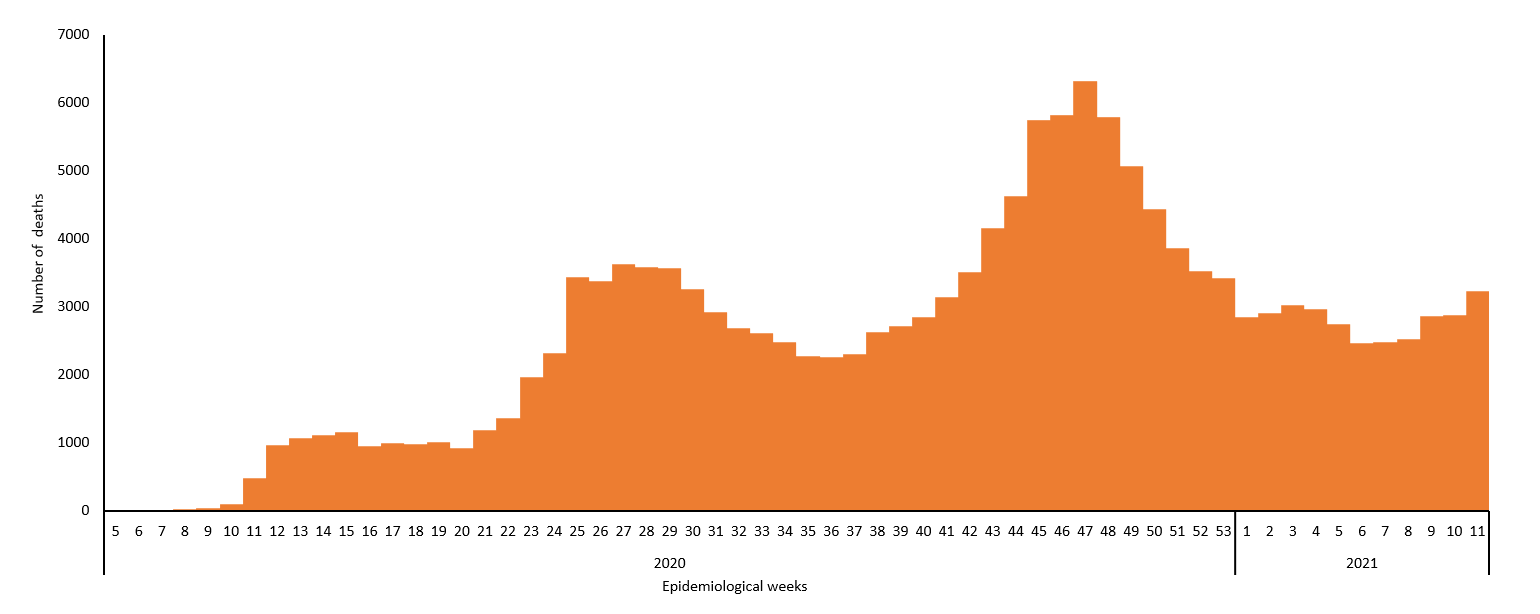The coronavirus disease COVID-19 continues to spread at the regional and global levels. As of 20 March 2021, the global cumulative incidence reached 122 019 605 reported cases and 2 694 598 associated deaths with a case fatality ratio (CFR) of 2.2%. Meanwhile, the 22 countries of the Eastern Mediterranean Region (EMR) have reported a total of 7 129 403 cases, which represent about 5.8% of the global count, with 153 530 associated deaths (CFR 2.2%). Most countries in the Region are in the community transmission phase.
Since the beginning of the outbreak, the country that has reported the highest number of total cases in the Region is Islamic Republic of Iran (1 793 805 cases; 25.2% of the Region’s total), followed by Iraq (789 390; 11.1%) and Pakistan (626 802; 8.8%). Islamic Republic of Iran also reported the highest number of total associated deaths (61 724; CFR 3.4%) followed by Iraq (13 969; CFR 1.8%) and Pakistan (13 843; CFR 2.2%). The highest CFRs were reported by Yemen (22.5%) followed by Syrian Arab Republic (6.7%), while the lowest CFRs were reported by Qatar (0.2%) followed by United Arab Emirates (0.3%) and Bahrain (0.4%).
During epidemiological week 11, the Region reported an increase of 8.1% in cases when compared to the previous week (264 318 cases compared to 244 505 cases). Similarly, an increase of 12.2% was observed for associated deaths (3235 deaths compared to 2882 deaths).
Yemen, Jordan and Somalia reported a relative increase in COVID-19 activity in week 11. The cumulative number of cases increased from 2775 to 3282 in Yemen (18.3% weekly increase), from 469 000 to 526 666 in Jordan (12.3% weekly increase) and from 8946 to 9968 in Somalia (11.4% weekly increase). Somalia, Jordan and Yemen had the largest relative increase in deaths.
In terms of testing, a total of 108 317 261 laboratory PCR tests were conducted since the start of the outbreak across the Region including 3 758 798 tests in week 11, which shows a 1% decrease compared to the previous week (3 788 607). The highest number of PCR tests were reported from United Arab Emirates (35.2 million), followed by Saudi Arabia (14.6 million) and Islamic Republic of Iran (12.1 million). The United Arab Emirates and Bahrain are performing the highest rates of testing per capita (3554/1000 and 1997/1000, respectively). The average positivity rate for the Region is 6.6%. WHO recommends a positivity rate of around 3–12% as a general benchmark indicating adequate testing, which was achieved in most countries of the Region.
Meanwhile, COVID-19 vaccination continues across the Region. The total number of doses administered so far in 19 countries include 6 830 369 in United Arab Emirates, 6 360 732 in Morocco, 2 576 542 in Saudi Arabia, 580 539 in Bahrain, 322 000 in Kuwait, 510 000 in Qatar, 90 825 in Oman, 325 000 in Pakistan, 241 868 in Jordan, 119 966 in Lebanon, 60 486 in Islamic Republic of Iran, 45 000 in Afghanistan, 4871 in occupied Palestinian territories, 2177 in Iraq , 2555 in Tunisia and 1315 in Egypt. No data is available for Djibouti, Sudan and Syrian Arab Republic.
Supporting countries in the Region
The regional incident management support team continues to coordinate the response and provide technical support to countries and partners in the Region in the areas of coordination and partnership, surveillance, laboratory capacity, clinical management, infection prevention and control, risk communication and community engagement, points of entry according to the International Health Regulations (2005), research, health systems, and essential health services among others.


For more data from the Region, please visit the COVID-19 dashboard.
Subscribe to the monthly infectious hazard preparedness newsletter of WHO’s Health Emergencies Programme for latest data and analysis on epidemic- and pandemic-prone diseases, as well as news on outbreak preparedness and response within WHO’s Eastern Mediterranean Region.








